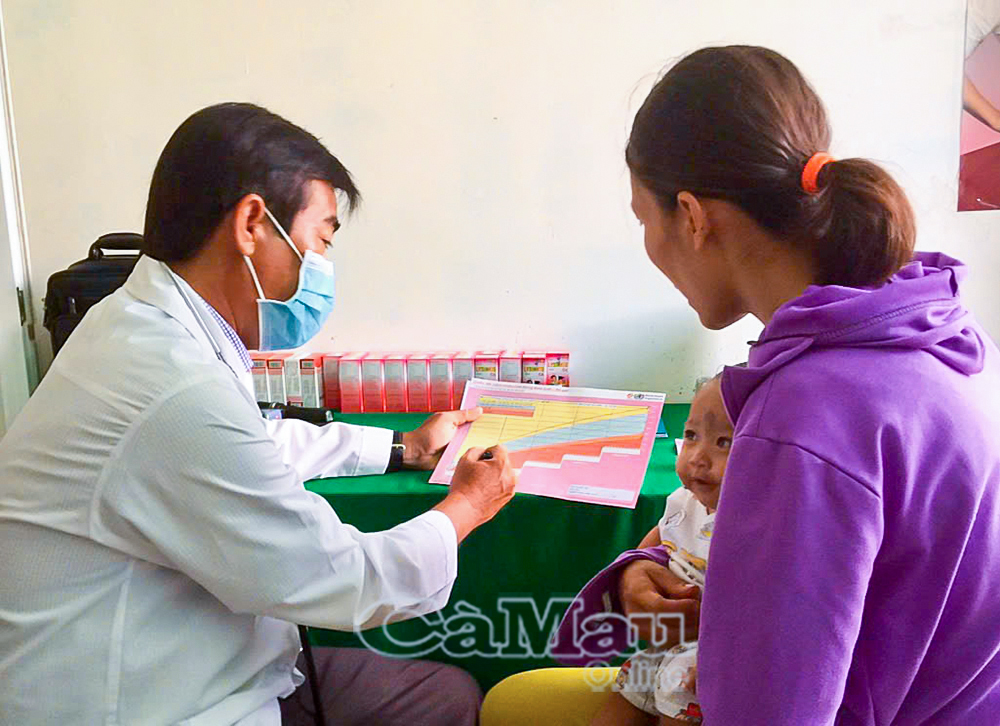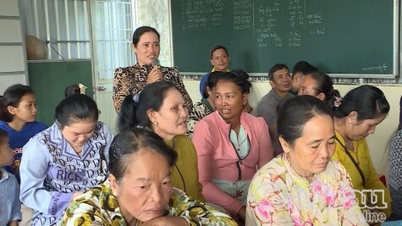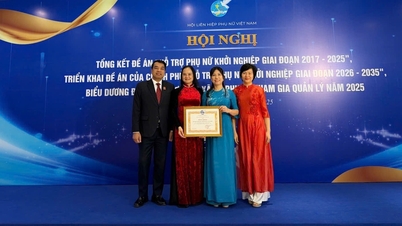- Nutrition for mothers and children
- Proper nutrition for sustainable development
- Micronutrients are essential for children's growth.
Proper nutrition is a daily diet that is sufficient in quantity and balanced in quality. Balance between energy-producing substances (protein, fat, sugar) and balance between foods of animal and plant origin.
Improper nutrition, whether deficient or excessive, affects the health and development of children. If the state of improper nutrition persists, it will hinder the child's recovery process. Therefore, paying attention to the child's nutrition is necessary.

Doctor Hoang Van Phong, communications officer, Nam Can Medical Center said: Providing adequate nutrition for children depends on the knowledge of parents and those who raise children about children's nutritional needs, breastfeeding, and appropriate supplementary diets. It is necessary to provide food for children including quantity and quality to meet basic nutritional needs. According to the assessment of medical experts, currently, the disease model of Vietnamese people is non-communicable diseases, with 75% of the mortality rate due to non-communicable diseases. In which, the leading are cardiovascular diseases, diabetes, cancer...
In addition, children's nutritional needs, if calculated by weight, are higher than adults. Therefore, to ensure children's nutritional needs, it is necessary to feed them nutritious foods and divide them into many meals, because their stomachs are small and their digestive capacity is limited, so they cannot absorb much food at the same time. Therefore, the care and feeding of children must be taken care of fully and properly. Children's nutritional needs and diet must be appropriate to the developmental needs of each age. The preparation must be palatable and ensure hygiene and cleanliness.

A balanced meal needs to have 4 main food groups: starch group (mainly from rice and cereals), protein group (meat, fish, eggs, milk, beans, peas...), fat group (animal fat, vegetable oil), vitamin and mineral group (vegetables, tubers, fruits...).
Accordingly, energy nutrition from cereals should only account for 60 - 65% (total energy intake), the rest is fat accounting for 20 - 25% and protein accounting for 10 - 15%.
The World Health Organization recommends eating at least 400 grams of vegetables and fruits every day, which helps prevent chronic diseases related to nutrition such as cardiovascular diseases, stomach cancer and colorectal cancer. Children also need to be taught to eat vegetables with appropriate preparation.
However, parents should not let their children eat too much red meat because it will increase the risk of cardiovascular diseases, cancer, gout... although red meat has a lot of iron which helps prevent iron deficiency anemia.
“You should not eat too many stir-fried, fried, or grilled dishes, but should increase your intake of boiled and steamed dishes to reduce the loss of nutrients and avoid transforming food into substances that can be harmful to your health,” Dr. Phong recommends.
Nutrition plays an important role in helping children stay healthy and develop comprehensively. Proper care and nutrition not only helps children develop comprehensively but also creates a foundation for a healthy future. In particular, building a scientific nutritional regimen right from the first years of life will help children establish healthy eating habits, full of nutrients.
Mai Thanh
Source: https://baocamau.vn/dinh-duong-hop-ly-phong-cac-benh-man-tinh-a114484.html


![[Photo] General Secretary To Lam receives the Director of the Academy of Public Administration and National Economy under the President of the Russian Federation](/_next/image?url=https%3A%2F%2Fvphoto.vietnam.vn%2Fthumb%2F1200x675%2Fvietnam%2Fresource%2FIMAGE%2F2025%2F12%2F08%2F1765200203892_a1-bnd-0933-4198-jpg.webp&w=3840&q=75)













































































































Comment (0)